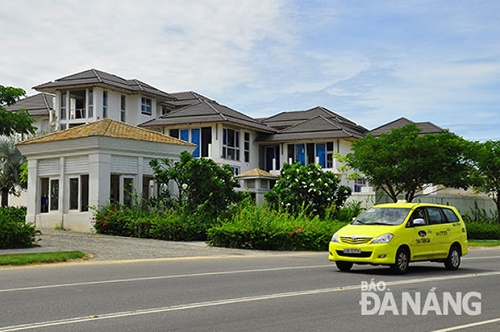Efforts to attract more FDI
Da Nang is now home to 378 valid foreign direct investment (FDI) projects from 38 countries and territories worldwide, with the total investment to date now standing at 3.49 billion USD. Of this, South Korea takes the lead among the city’s foreign investors with a total of 51 projects, followed by Singapore, the British Virgin Islands, Japan, and the USA.
In recent years, the city has faced difficulties in attracting new investment inflows, especially FDI projects. Between 2006 and 2010, the city attracted over 2.4 billion USD from FDI projects, but only just over 1.3 billion USD has come in the period 2011 - 2015.
A Japanese investor, Mr Yuichi Bamba, comments that although the Da Nang authorities have taken various steps to try to improve the local investment climate, Japanese businesses still find there are many obstacles which hinder their investment into the city.
Specifically mentioned are the city’s policies on foreign investment and land acquisition. In addition, the city lacks some support industries and raw material suppliers, as well as adequate infrastructure to assist Japanese expats living in the city. Also, Japanese businesses seem to find it very hard to seek partners in the city with which to establish joint venture firms.
 |
| Many foreign investors show interest in the real estate sector |
In an attempt to attract more FDI to the city, one focus will be on developing detailed strategies for such priority aspects as support industries, hi-tech, and environmentally-friendly projects. Incentive policies will be issued for foreign investors to invest in the hi-tech industrial park (IP).
Special attention will be paid to improving the infrastructure at the IPs, speeding up the implementation of the 2nd phase of the Tien Sa Port expansion project, and building the new Lien Chieu Port.
The investment licences of delayed projects across the city will be revoked, and activities to attract investment will be diversified. Importance will be attached to accelerating administrative reforms, simplifying investment procedures, and enhancing the professional skills of those involved in investment promotion activities.
In addition, greater efforts will be made to attract FDI inflows from such traditional international markets as Japan and South Korea, and with localities along the East-West Economic Corridor (EWEC) route and in the expanded Greater Mekong Sub-region. Appeals for investment will be made to transnational and well-known companies from Japan, South Korea, the USA and European countries.